Allan Savory has spent decades studying the devastating effects of “desertification“: healthy land degrading into deserts all around the world and accelerating climate change in the process.
On the TED2013 stage, Savory offered a fascinating idea for reclaiming degraded land — using livestock to mimic the behavior of herds that used to roam these lands. The idea is bold and counterintuitive, and sparked lively debate the minute Savory stepped off the stage. Savory returns today with the TED Book The Grazing Revolution, which digs much deeper into this idea.
The process of desertification is complex, and Savory’s holistic solution requires many moving parts. So we’ve provided these handy visual Cliffs notes of key terms Savory uses in the book, to help everyone get the footing to understand this fascinating read.
Read much more in the new TED Book, The Grazing Revolution: A Radical Plan to Save the Earth, available for the Kindle or Nook, as well as through the iBookstore. Or download the TED Books app to get access to this title — and the entire TED Books archive — for the duration of your subscription.
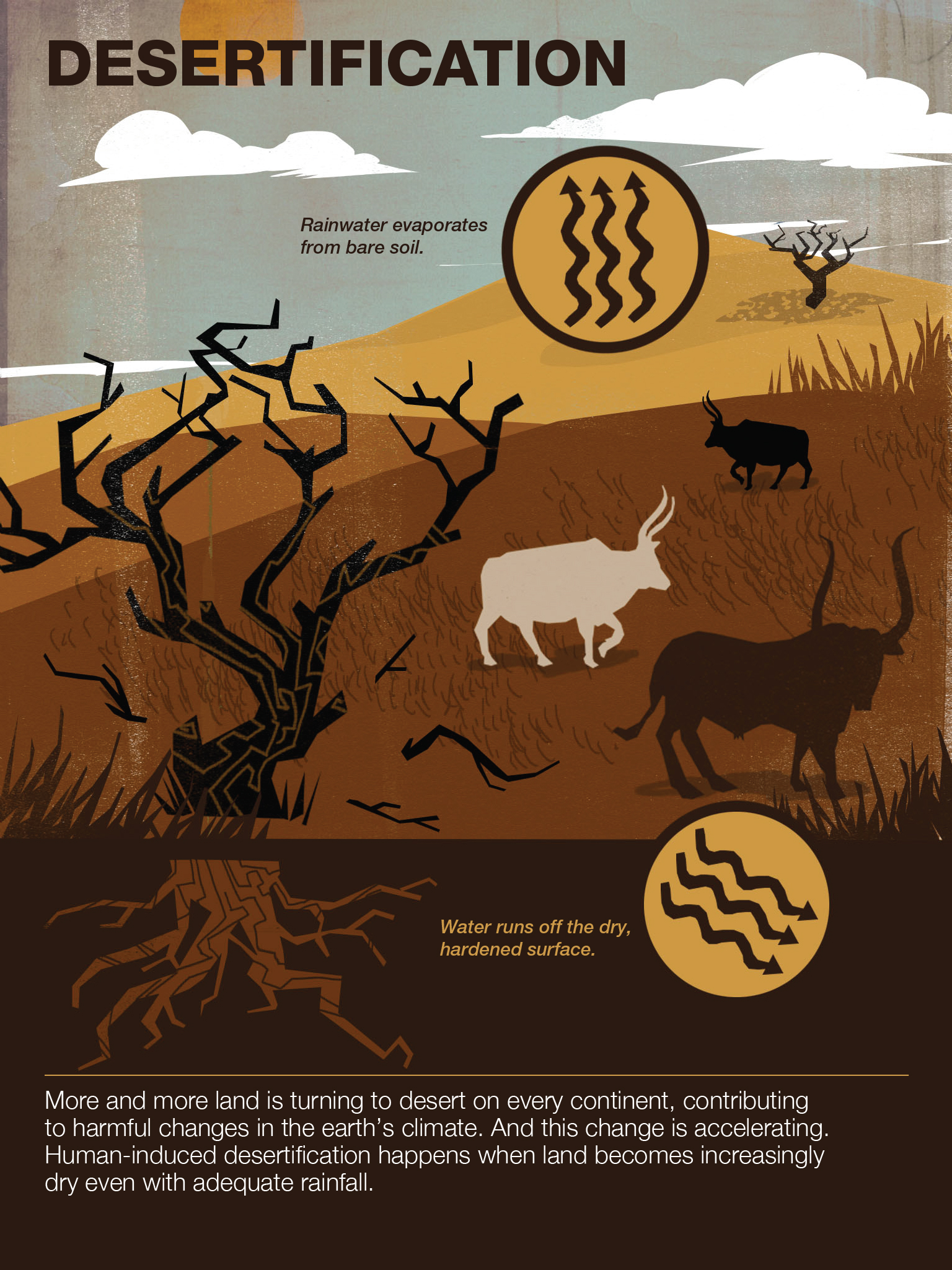
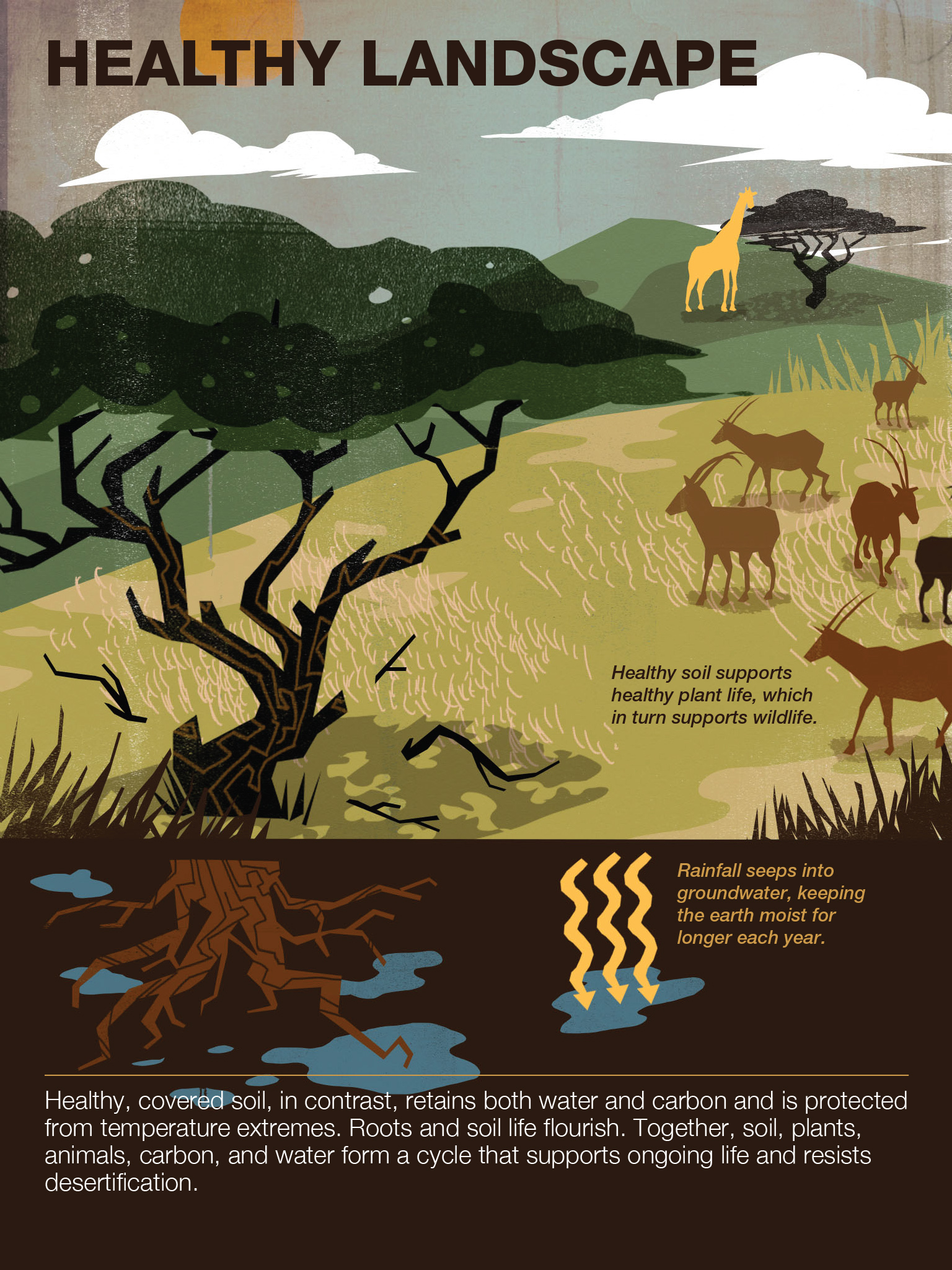
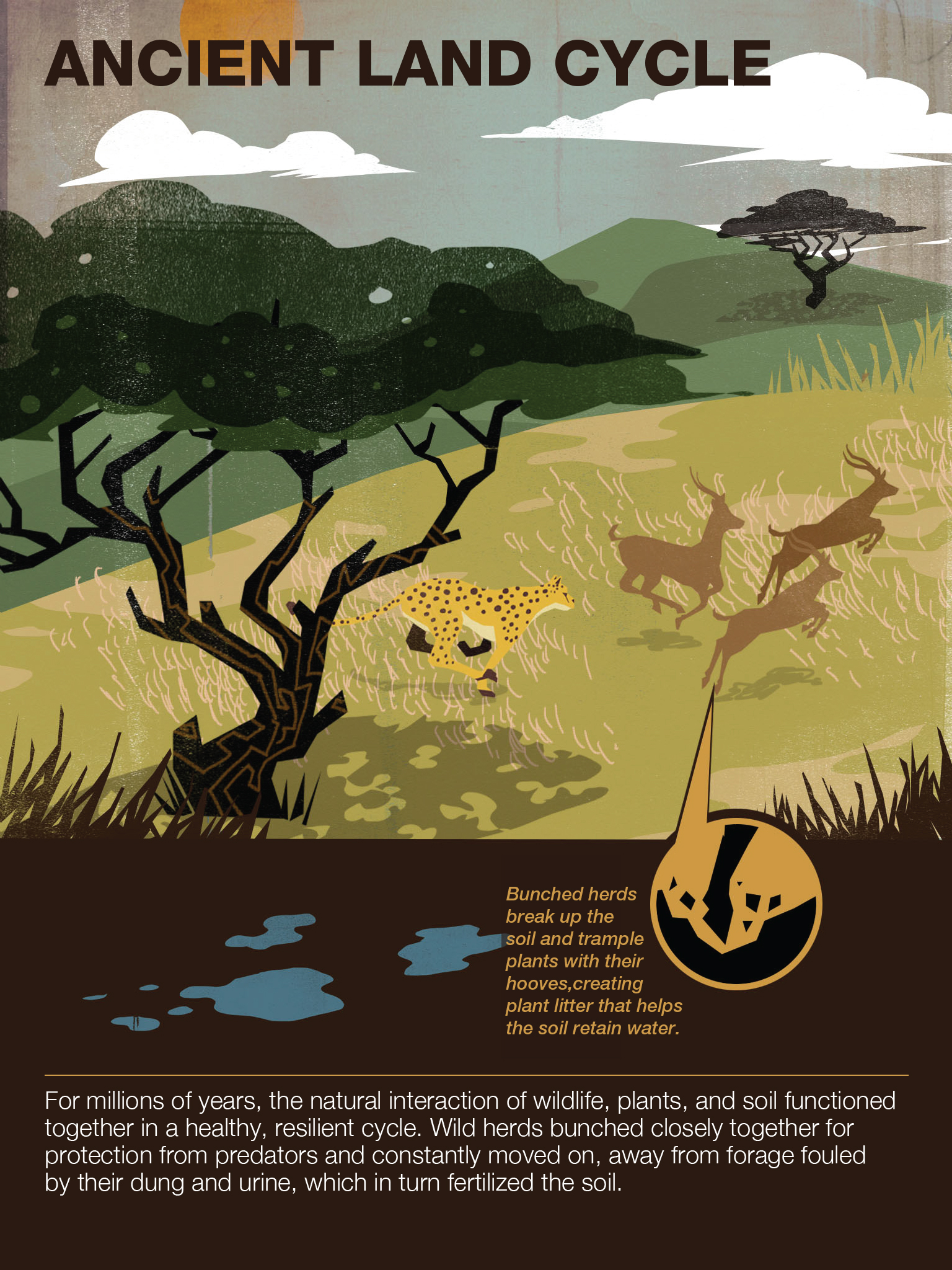
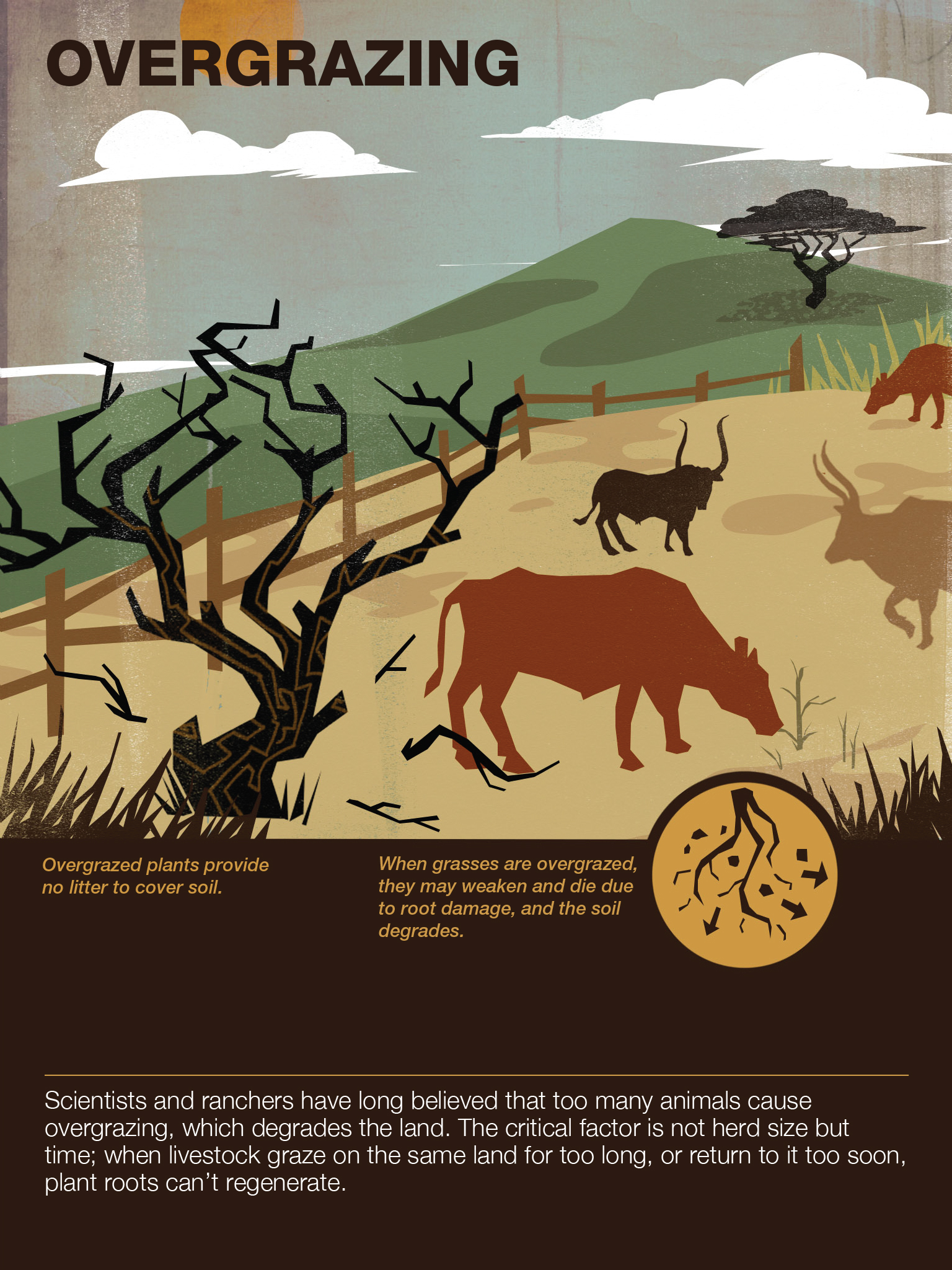
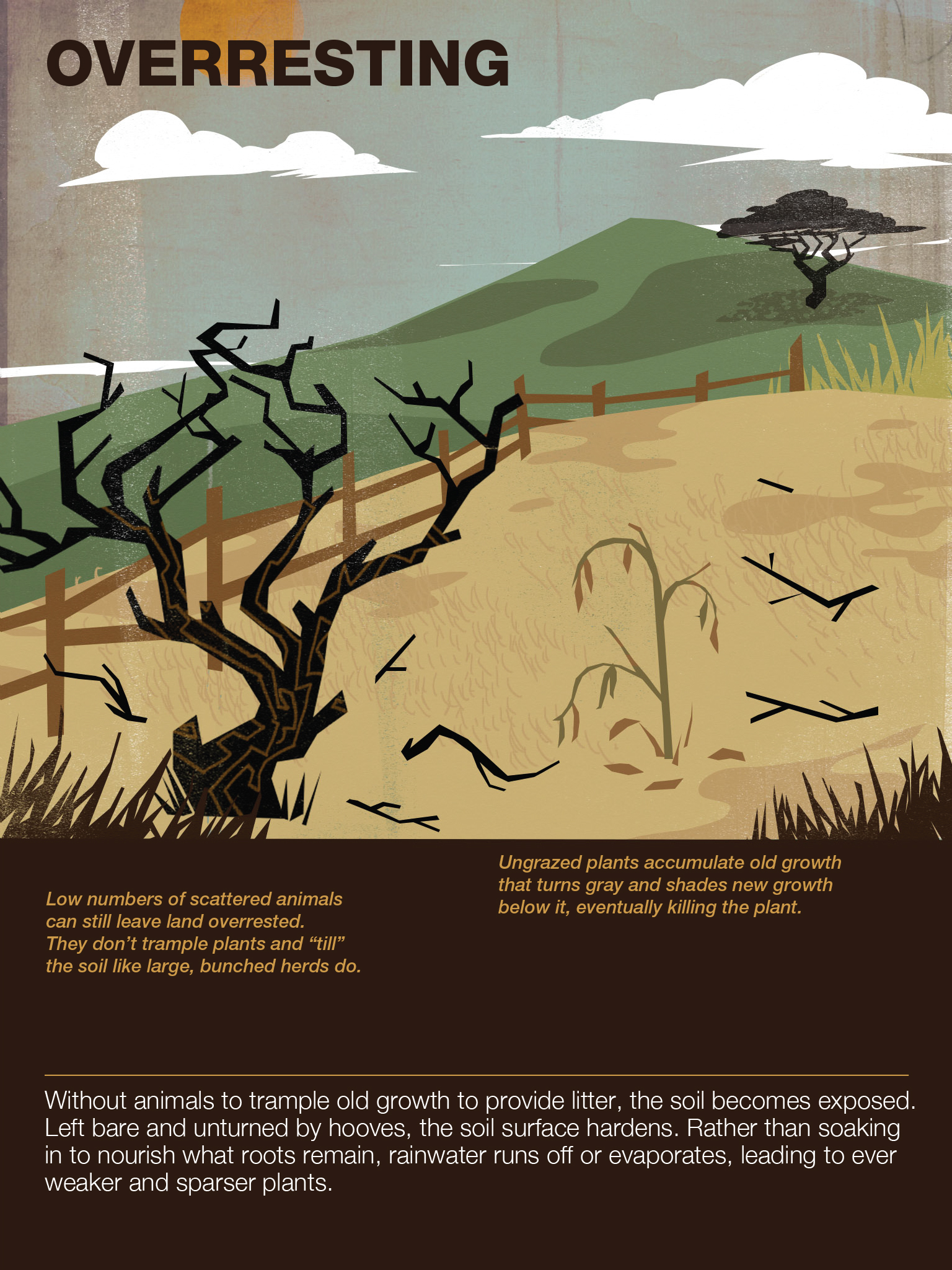
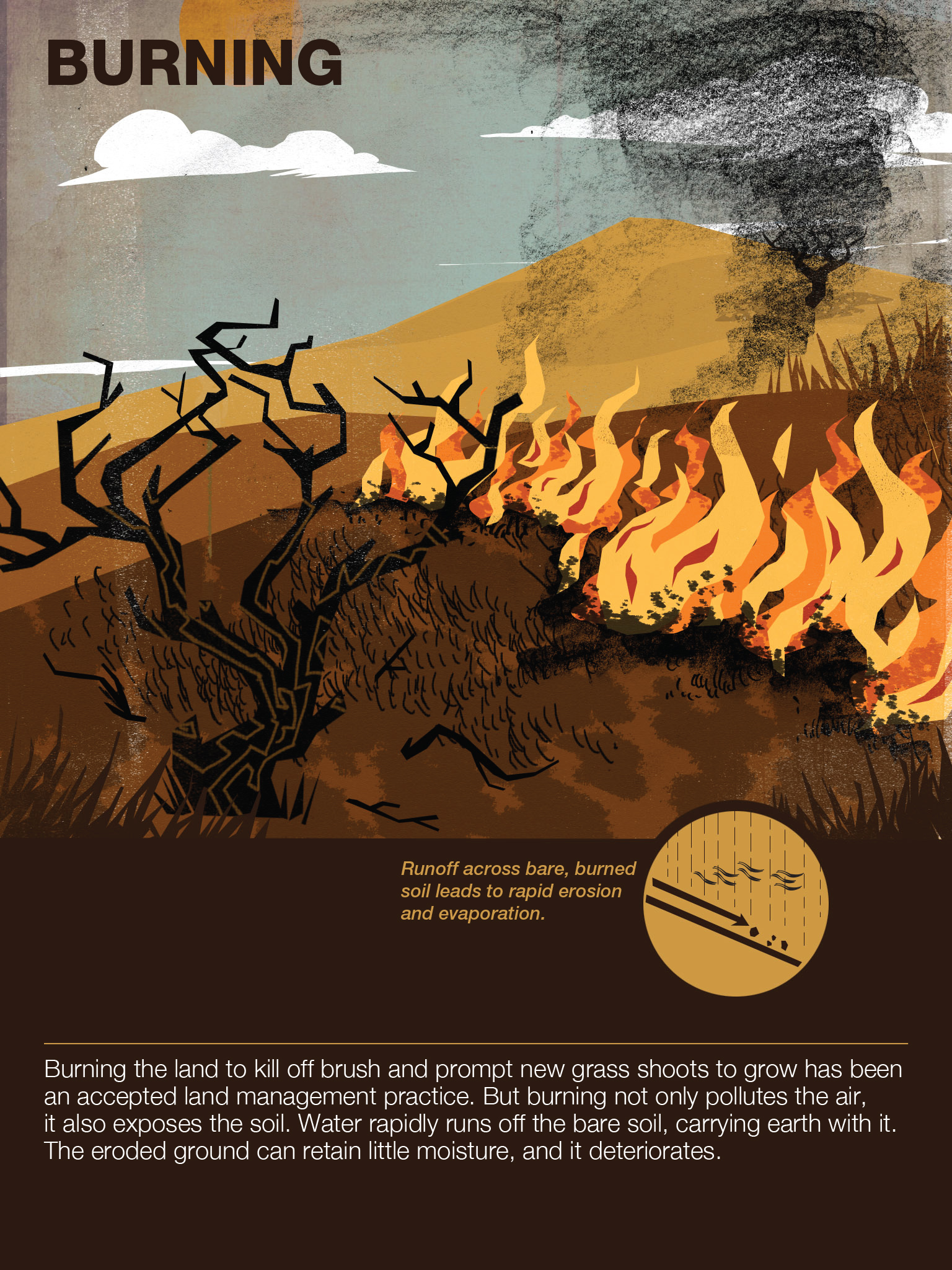
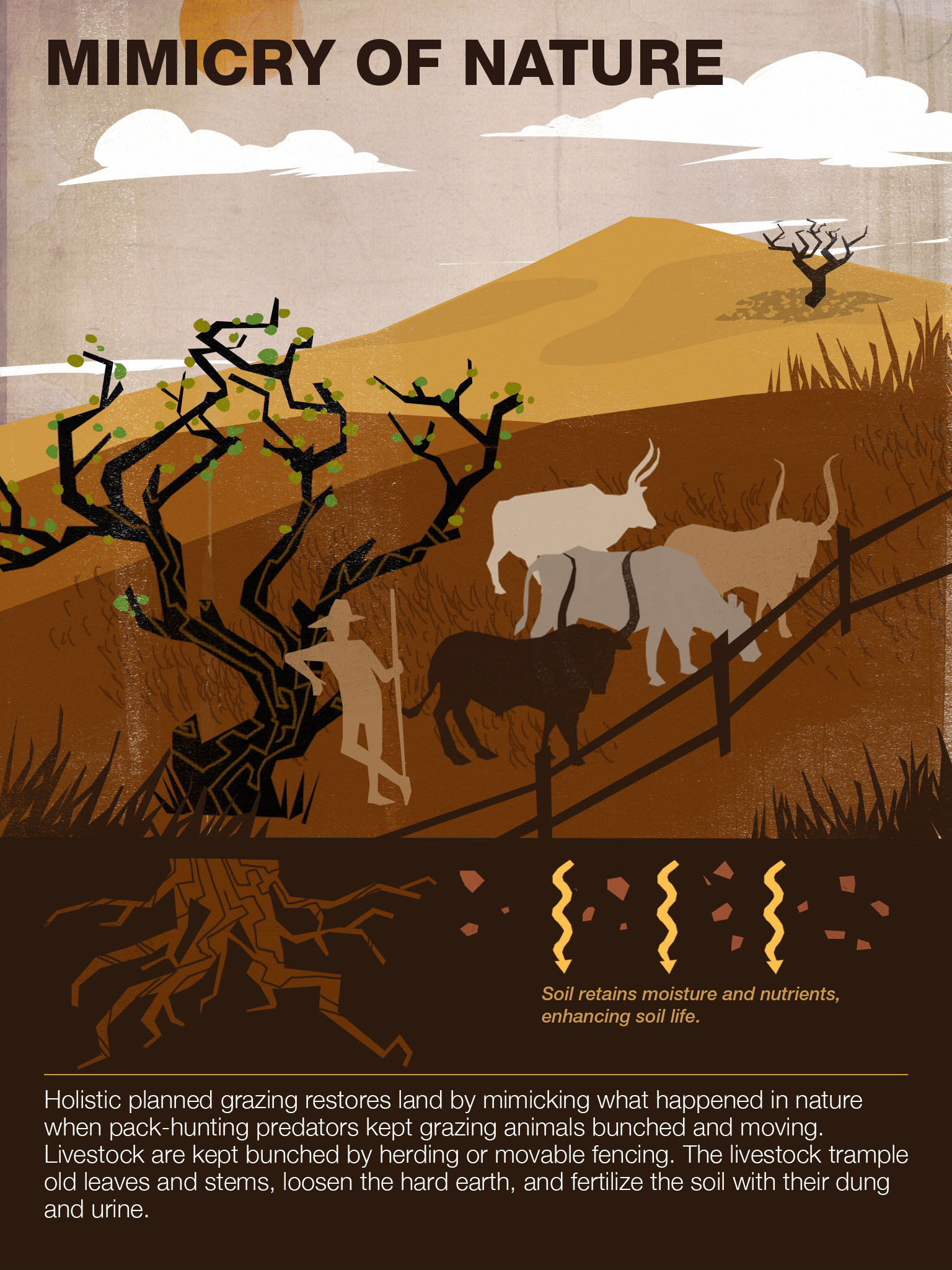
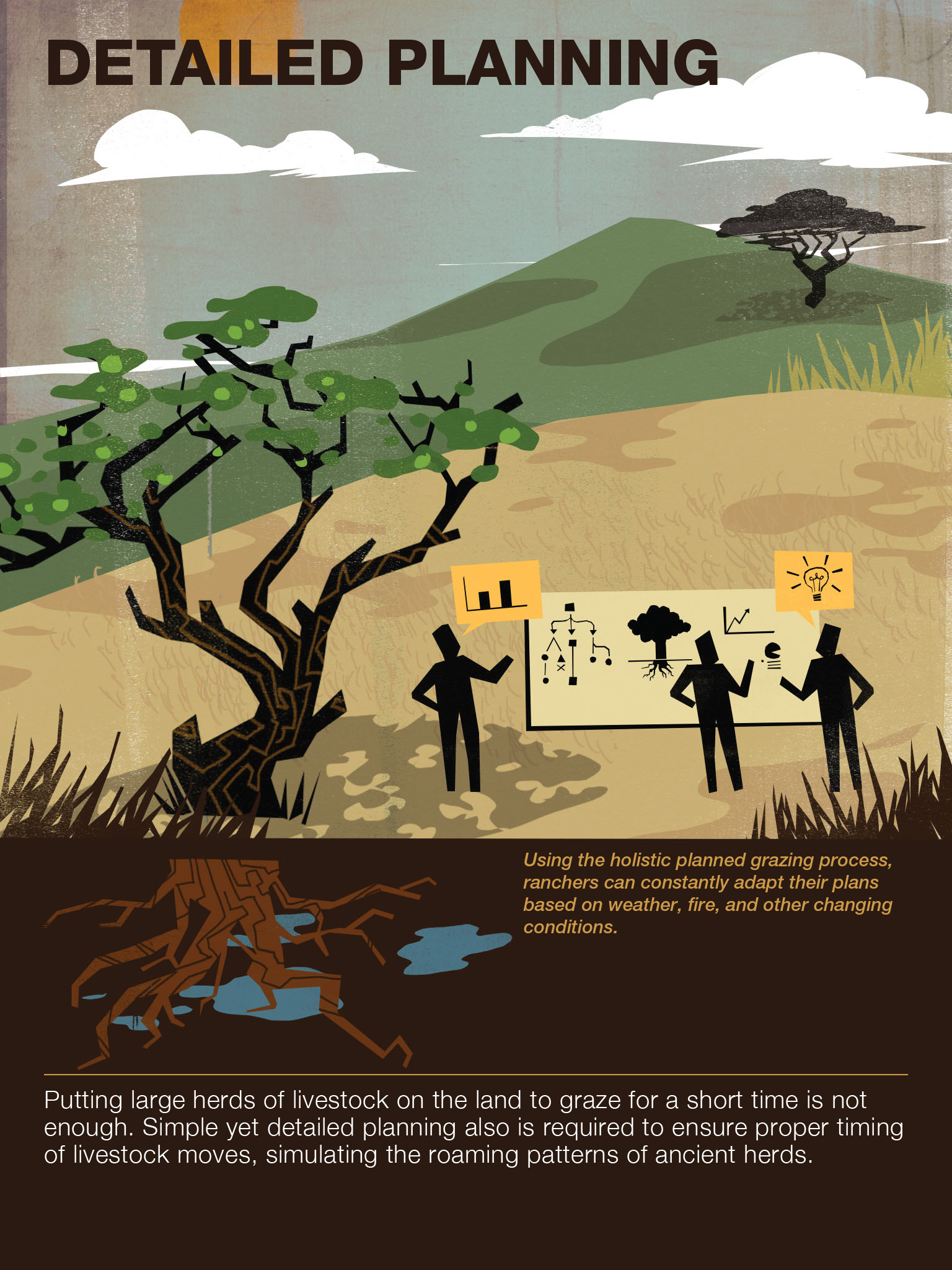
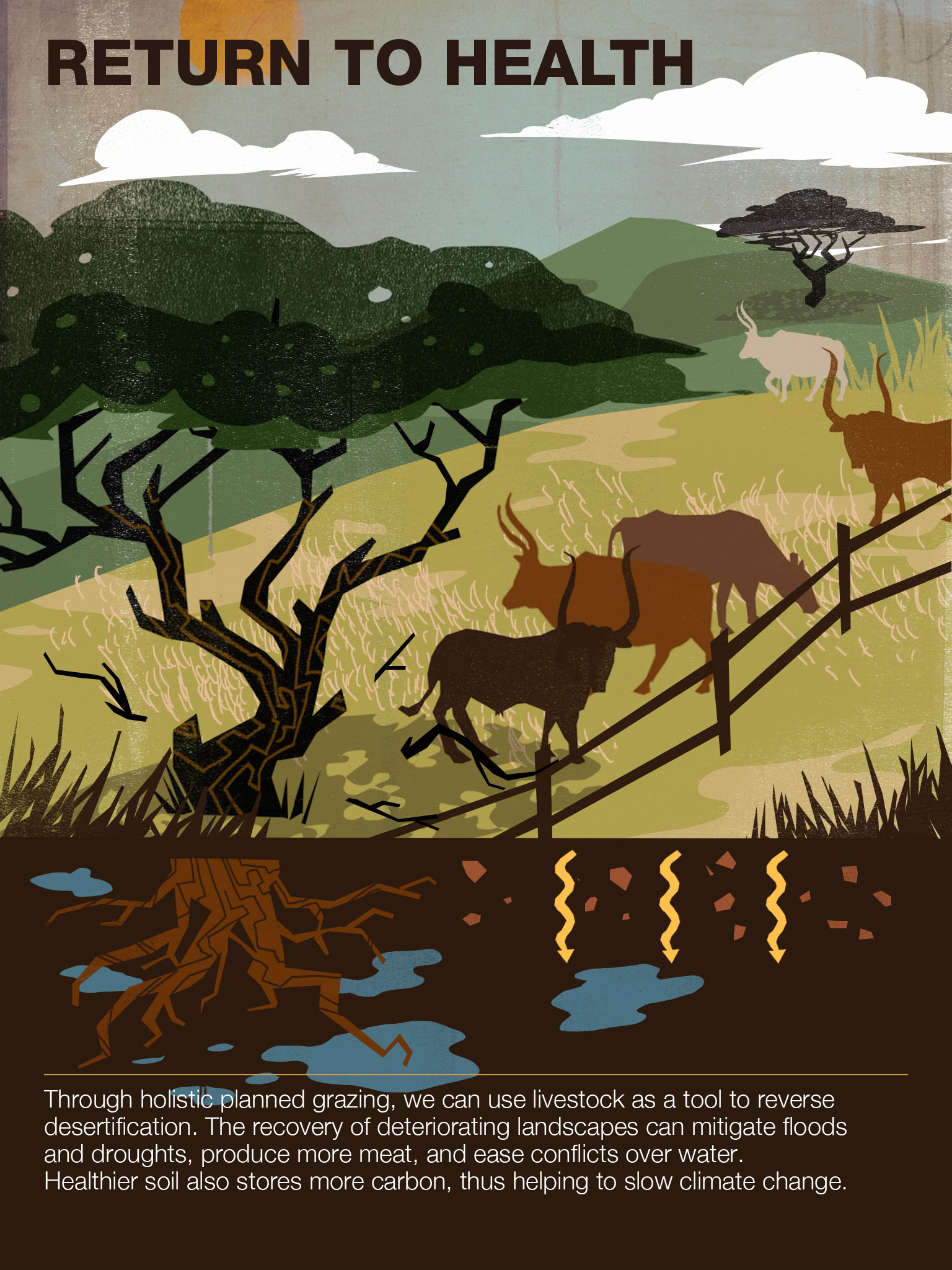
Comments (3)
Pingback: Una propuesta para evitar la desertificación en sencillas imágenes | Investigación en Salud Ambiental y Ecotoxicología
Pingback: An infographic cheat sheet for key concepts in “The Grazing Revolution”